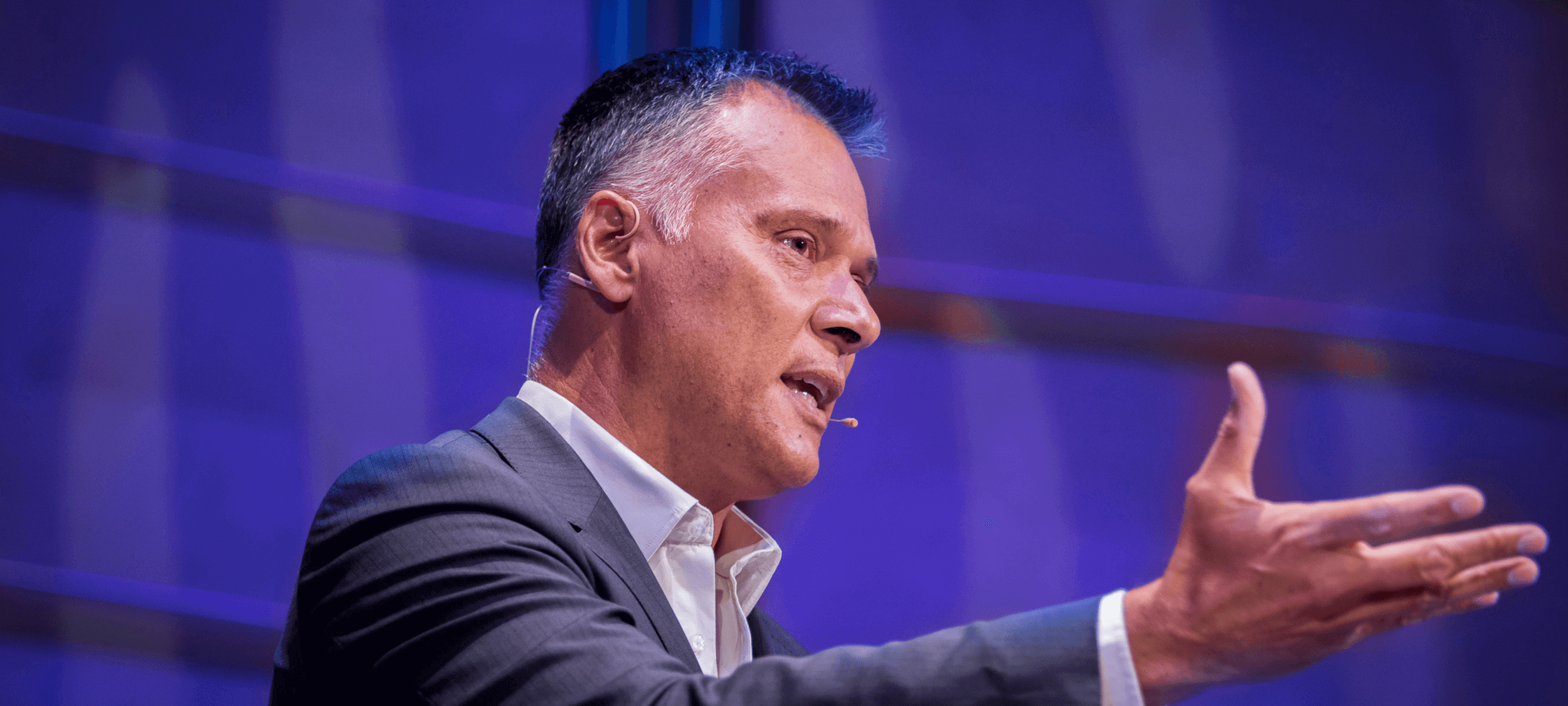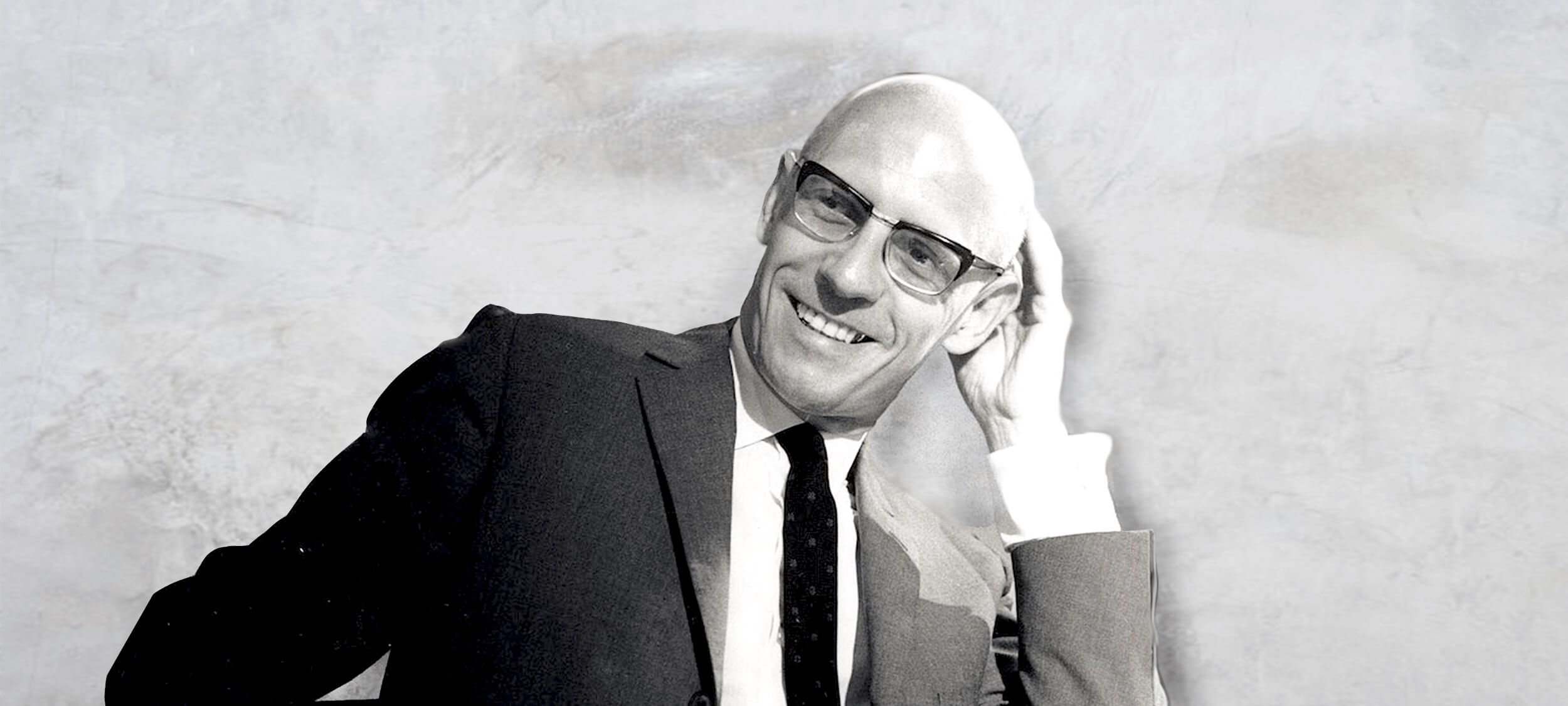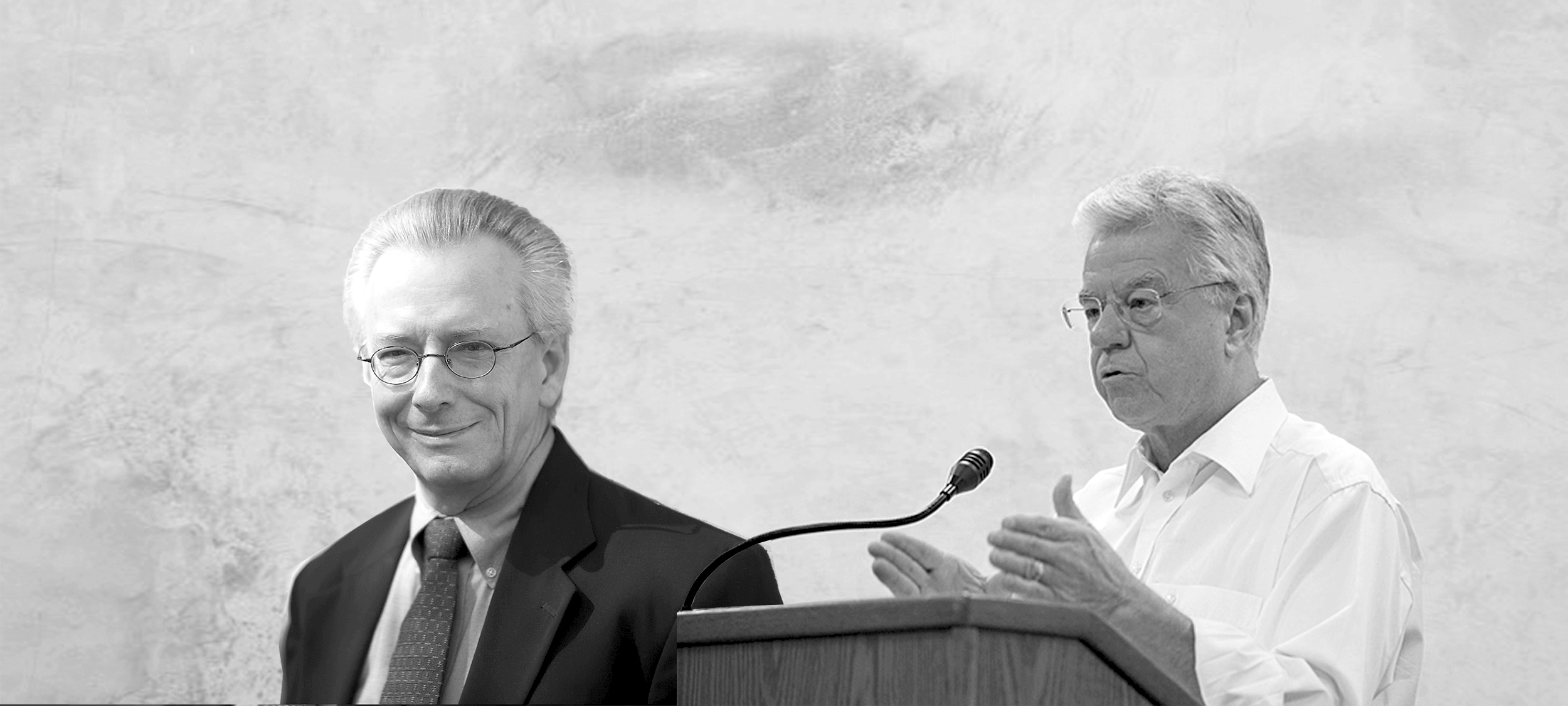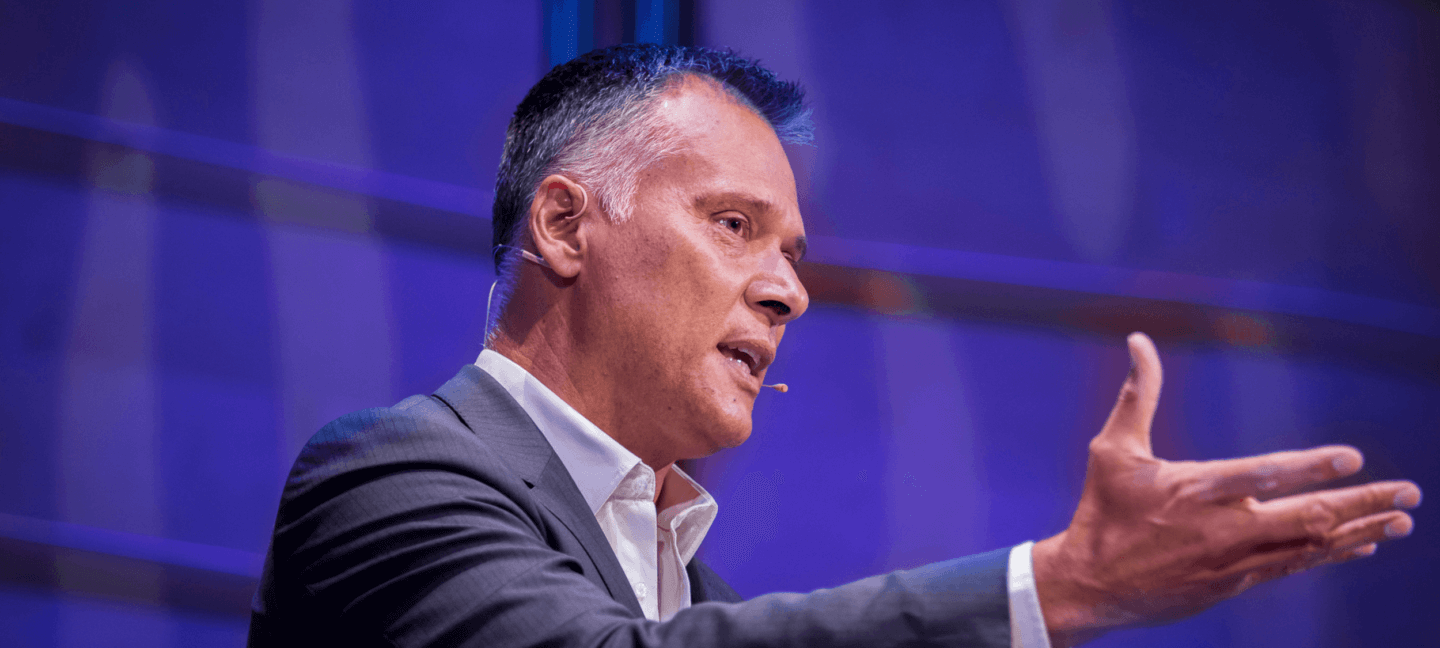Ethics Explainer: Deontology

Deontology is an ethical theory that says actions are good or bad according to a clear set of rules.
Its name comes from the Greek word deon, meaning duty. Actions that align with these rules are ethical, while actions that don’t aren’t. This ethical theory is most closely associated with German philosopher, Immanuel Kant.
His work on personhood is an example of deontology in practice. Kant believed the ability to use reason was what defined a person.
From an ethical perspective, personhood creates a range of rights and obligations because every person has inherent dignity – something that is fundamental to and is held in equal measure by each and every person.
This dignity creates an ethical ‘line in the sand’ that prevents us from acting in certain ways either toward other people or toward ourselves (because we have dignity as well). Most importantly, Kant argues that we may never treat a person merely as a means to an end (never just as a resource or instrument).
Kant’s ethics isn’t the only example of deontology. Any system involving a clear set of rules is a form of deontology, which is why some people call it a “rule-based ethic”. The Ten Commandments is an example, as is the Universal Declaration of Human Rights.
Most deontologists say there are two different kinds of ethical duties, perfect duties and imperfect duties. A perfect duty is inflexible. “Do not kill innocent people” is an example of a perfect duty. You can’t obey it a little bit – either you kill innocent people or you don’t. There’s no middle-ground.
Imperfect duties do allow for some middle ground. “Learn about the world around you” is an imperfect duty because we can all spend different amounts of time on education and each be fulfilling our obligation. How much we commit to imperfect duties is up to us.
Our reason for doing the right thing (which Kant called a maxim) is also important.
We should do our duty for no other reason than because it’s the right thing to do.
Obeying the rules for self-interest, because it will lead to better consequences or even because it makes us happy is not, for deontologists, an ethical reason for acting. We should be motivated by our respect for the moral law itself.
Deontologists require us to follow universal rules we give to ourselves. These rules must be in accordance with reason – in particular, they must be logically consistent and not give rise to contradictions.
It’s worth mentioning that deontology is often seen as being strongly opposed to consequentialism. This is because in emphasising the intention to act in accordance with our duties, deontology believes the consequences of our actions have no ethical relevance at all – a similar sentiment to that captured in the phrase “Let justice be done, though the heavens may fall”.
The appeal of deontology lies in its consistency. By applying ethical duties to all people in all situations the theory is readily applied to most practical situations. By focussing on a person’s intentions, it also places ethics entirely within our control – we can’t always control or predict the outcomes of our actions, but we are in complete control of our intentions.
Others criticise deontology for being inflexible. By ignoring what’s at stake in terms of consequences, some say it misses a serious element of ethical decision-making. De-emphasising consequences has other implications too – can it make us guilty of ‘crimes of omission’? Kant, for example, argued it would be unethical to lie about the location of our friend, even to a person trying to murder them! For many, this seems intuitively false.
One way of resolving this problem is through an idea called threshold deontology, which argues we should always obey the rules unless in an emergency situation, at which point we should revert to a consequentialist approach.
But is this a cop-out? How do we define ‘emergency’?
Ethics in your inbox.
Get the latest inspiration, intelligence, events & more.
By signing up you agree to our privacy policy
You might be interested in…
Big thinker
Politics + Human Rights, Relationships
Big Thinker: Michel Foucault
Opinion + Analysis
Politics + Human Rights
Why Anzac Day’s soft power is so important to social cohesion
Big thinker
Health + Wellbeing, Politics + Human Rights
Big Thinkers: Thomas Beauchamp & James Childress
Opinion + Analysis
Politics + Human Rights
A note on Anti-Semitism
BY The Ethics Centre
The Ethics Centre is a not-for-profit organisation developing innovative programs, services and experiences, designed to bring ethics to the centre of professional and personal life.
BY ethics
Ethics Explainer: Virtue Ethics

Virtue ethics is arguably the oldest ethical theory in the world, with origins in Ancient Greece.
It defines good actions as ones that display embody virtuous character traits, like courage, loyalty, or wisdom. A virtue itself is a disposition to act, think and feel in certain ways. Bad actions display the opposite and are informed by vices, such as cowardice, treachery, and ignorance.
For Aristotle, ethics was a key element of human flourishing because it taught people how to differentiate between virtues and vices. By encouraging examination, more people could live a life dedicated to developing virtues.
It’s one thing to know what’s right, but it’s another to actually do it. How did Aristotle advise us to live our virtues?
By acting as though we already have them.
Excellence as habit
Aristotle explained that both virtues and vices are acquired by repetition. If we routinely overindulge a sweet tooth, we develop a vice — gluttony. If we repeatedly allow others to serve themselves dinner before us, we develop a virtue – selflessness.
Virtue ethics suggests treating our character as a lifelong project, one that has the capacity to truly change who we are. The goal is not to form virtues that mean we act ethically without thinking, but to form virtues that help us see the world clearly and make better judgments as a result.
In a pinch, remember: vices distort, virtues examine.
A quote most of the internet attributes to Aristotle succinctly reads: “We are what we repeatedly do. Excellence, then, is not an act, but a habit”.
Though he didn’t actually say this, it’s a good indication of what virtue ethics stands for. We can thank American philosopher, Will Durant, for the neat summary.
Aim for in between
There are two practical principles that virtue ethics encourages us to use in ethical dilemmas. The first is called The Golden Mean. When we’re trying to work out what the virtuous thing to do in a particular situation is, look to what lies in the middle between two extreme forms of behaviour. The mean will be the virtue, and the extremes at either end, vices.
Here’s an example. Imagine your friend is wearing a horrendous outfit and asks you how they look. What are the extreme responses you could take? You could a) burst out laughing or b) tell them they look wonderful when they don’t.
These two extremes are vices – the first response is malicious, the second is dishonest. The virtuous response is between these two. In this case, that would be gently — but honestly — telling your friend you think they’d look nicer in another outfit.
Imagination
The second is to use our imagination. What would we do if we were already a virtuous person? By imagining the kind of person we’d like to be and how we would want to respond we can start to close the gap between our aspirational identity and who we are at the moment.
Virtue ethics can remind us of the importance of role models. If you want someone to learn ethics, show them an ethical person.
Some argue virtue ethics is overly vague in guiding actions. They say its principles aren’t specific enough to help us overcome difficult ethical conundrums. “Be virtuous” is hard to conceptualise. Others have expressed concern that virtues or vices aren’t agreed on by everybody. Stoicism or sexual openness can be a virtue to some, a vice to others.
Finally, some people think virtue ethics breeds ‘moral narcissism’, where we are so obsessed with our own ethical character that we value it above anyone or anything else.
Ethics in your inbox.
Get the latest inspiration, intelligence, events & more.
By signing up you agree to our privacy policy
You might be interested in…
Opinion + Analysis
Health + Wellbeing, Relationships
How to deal with people who aren’t doing their bit to flatten the curve
Opinion + Analysis
Relationships
The wonders, woes, and wipeouts of weddings
Opinion + Analysis
Business + Leadership, Politics + Human Rights, Relationships
It’s time to increase racial literacy within our organisations
Opinion + Analysis
Relationships
How to respectfully disagree
BY The Ethics Centre
The Ethics Centre is a not-for-profit organisation developing innovative programs, services and experiences, designed to bring ethics to the centre of professional and personal life.
Ethics Explainer: Consequentialism

Consequentialism is a theory that says whether something is good or bad depends on its outcomes.
An action that brings about more benefit than harm is good, while an action that causes more harm than benefit is not. The most famous version of this theory is utilitarianism.
Although there are references to this idea in the works of ancient philosopher Epicurus, it’s closely associated with English philosopher Jeremy Bentham.
Bentham’s theory of utilitarianism focussed on which actions were most likely to make people happy. If happiness was the experience of pleasure without pain, the most ethical actions were ones that caused the most possible happiness and the least possible pain.
He even developed a calculator to work out which actions were better or worse – the ‘felicific calculus’. Because it counted every person’s pleasure or pain as the same, regardless of age, wealth, race, etc. utilitarianism could be seen as a radically egalitarian philosophy.
Bentham’s views are most closely aligned with act utilitarianism. This basic form of consequentialism holds an action as ethical if and only if it produces more beneficial/pleasure-causing outcomes than negative/pain-causing ones. Whenever we are faced with a decision, an act consequentialist will expect us to ask that question.
John Stuart Mill, a student of Bentham’s, disagreed. He believed it was too difficult for a society to run if it had to consider the specific costs/benefits of every single action. How could we have speeding laws, for example, if it would sometimes be ethical to break the speed limit?
Instead, Mill believed we should figure out which set of rules would create the most happiness over an extended period of time and then apply those in every situation. This was his theory of rule utilitarianism.
According to this theory, it would be unethical for you to speed on an empty street at two o’clock in the morning. Even if nobody would be hurt, our speeding laws mean less people are harmed overall. Keeping to those rules ensures that.
Consequentialism is an attractive ethical approach because it provides clear and practical guidance – at least in situations where outcomes are easy to predict. The theory is also impartial. By asking us to maximise benefit for the largest number of people (or, for Peter Singer and other preference utilitarians, creatures who have preferences), we set aside our personal biases and self-interest to benefit others.
One problem with the theory is that it can be hard to measure different benefits to decide which one is morally preferable. Is it better to give my money to charity or spend it studying medicine so I can save lives? Many forms of consequentialism have been proposed that attempt to deal with the issue of comparing moral value.
The other concern people express is the tendency of consequentialism to use ‘ends justify the means’ logic. If all we are concerned with is getting good outcomes, this can seem to justify harming some people in order to benefit others. Is it ethical to allow some people to suffer so more people can live well?
Ethics in your inbox.
Get the latest inspiration, intelligence, events & more.
By signing up you agree to our privacy policy
You might be interested in…
Opinion + Analysis
Relationships, Politics + Human Rights
How to have a difficult conversation about war
Opinion + Analysis
Business + Leadership, Relationships
Facing tough decisions around redundancies? Here are some things to consider
Explainer
Business + Leadership, Politics + Human Rights, Relationships
Ethics Explainer: Power
Opinion + Analysis
Health + Wellbeing, Relationships
Mutuality of care in a pandemic
BY The Ethics Centre
The Ethics Centre is a not-for-profit organisation developing innovative programs, services and experiences, designed to bring ethics to the centre of professional and personal life.
The myths of modern motherhood

The myths of modern motherhood
Opinion + AnalysisHealth + WellbeingRelationships
BY Dr Camilla Nelson The Ethics Centre 12 FEB 2016
It seems as if three successive waves of feminism haven’t resolved the chronic mismatch between the ideal of the ‘good’ and ‘happy’ mother and the realities of women’s lives.
Even if you consciously reject them, ideas about what a mother ought to be and ought to feel are probably there from the minute you wake up until you go to bed at night. Even in our age of increased gender equality it seems as if the culture loves nothing more than to dish out the myths about how to be a better mother (or a thinner, more fashionable, or better-looking one).
It’s not just the celebrity mums pushing their prams on magazine covers, or the continuing dearth of mothers on TV who are less than exceptionally good-looking, or that mothers in advertising remain ubiquitously obsessed with cleaning products and alpine-fresh scents. While TV dramas have pleasingly increased the handful of roles that feature working mothers, most are unduly punished in the twists of the melodramatic plot. They have wimpy husbands or damaged children, and of course TV’s bad characters are inevitably bad due to the shortcomings of their mothers (serial killers, for example, invariably have overbearing mothers or alcoholic mothers, or have never really separated from their mothers).
It seems we are living in an age of overzealous motherhood. Indeed, in a world in which the demands of the workplace have increased, so too the ideals of motherhood have become paradoxically more – not less – demanding. In recent years, commonly accepted ideas about what constitutes a barely adequate level of mothering have dramatically expanded to include extraordinary sacrifices of time, money, feelings, brains, social relationships, and indeed sleep.
In Australia, most mothers work. But recent studies show that working mothers now spend more time with their children than their non-working mothers did in 1975. Working mothers achieve this extraordinary feat by sacrificing leisure, mental health, and even personal hygiene to spend more time with their kids.
This is coupled with a new kind of anxious sermonising that is having a profound impact on mothers, especially among the middle class. In Elisabeth Badinter’s book The Conflict, she argues that an ideology of ‘Naturalism’ has given rise to an industry of experts advocating increasingly pristine forms of natural birth and natural pregnancy, as well as an ever-expanding list of increasingly time-intensive child rearing duties that are deemed to fall to the mother alone. These duties include most of the classic practices of 21st century child rearing, including such nostrums as co-sleeping, babywearing and breastfeeding-on-demand until the age of two.
It seems we are living in an age of overzealous motherhood.
Whether it is called Intensive Mothering or Natural Parenting, these new credos of motherhood are wholly taken up with the idea that there is a narrowly prescribed way of doing things. In the West, 21st century child rearing is becoming increasingly time-consuming, expert-guided, emotionally draining, and incredibly expensive. In historical terms, I would be willing to hazard a guess that never before has motherhood been so heavily scrutinised. It is no longer just a question of whether you should or should not eat strawberries or prawns or soft cheese, or, heaven forbid, junk food, while you are pregnant, but so too, the issue of what you should or should not feel has come under intense scrutiny.
Never before has there been such a microscopic investigation of a pregnant woman’s emotional state, before, during and after birth. Indeed, the construction of new psychological disorders for mothers appears to have become something of a psychological pastime, with the old list of mental disorders expanding beyond prenatal anxiety, postnatal depression, postpartum psychosis and the baby blues, to include the baby pinks (a label for a woman who is illogically and inappropriately happy to be a mother), as well as Prenatal and Postnatal Stress Disorder, Maternal Anxiety and Mood Imbalance and Tokophobia—the latter being coined at the start of this millennium as a diagnosis for an unreasonable fear of giving birth.
The problem with the way in which this pop psychology is played out in the media is that it performs an endless re-inscription of the ideologies of mothering. These ideologies are often illogical, contradictory and – one suspects – more often dictated by what is convenient for society and not what is actually good for the children and parents involved. Above all else, mothers should be ecstatically happy mothers, because sad mothers are failed mothers. Indeed, according to the prevailing wisdom, unhappy mothers are downright unnatural, if not certifiably insane.
Never before has motherhood been so heavily scrutinised.
Little wonder there has been an outcry against such miserable standards of perfection. The same decade that saw the seeming triumph of the ideologies of Intensive and Natural mothering, also saw the rise of what has been called the ‘Parenting Hate Read’ — a popular outpouring of books and blogs written by mothers (and even a few fathers) who frankly confess that they are depressed about having children for no better reason than it is often mind-numbing, exhausting and dreadful. Mothers love their children, say the ‘Parenting Hate Reads’, but they do not like what is happening to their lives.
The problem is perhaps only partly about the disparity between media images of ecstatically happy mummies and the reality of women’s lives. It is also because our ideas about happiness have grown impoverished. Happiness, as it is commonly understood in the western world, is made up of continuous moments of pleasure and the absence of pain.
These popular assumptions about happiness are of comparatively recent origin, emerging in the works of philosophers such as Jeremy Bentham, who argued in the 18th century that people act purely in their self-interest and the goal to which self-interest aspires is happiness. Ethical conduct, according to Bentham and James Mill (father to John Stuart), should therefore aspire to maximise pleasure and minimise pain.
Our ideas about happiness have grown impoverished.
This ready equation of goodness, pleasure and happiness flew in the face of ideas that had been of concern to philosophers since Aristotle argued that a person is not made happy by fleeting pleasures, but by fulfilment stemming from meaning and purpose. Or, as Nietzsche, the whirling dervish of 19th century philosophy, put it, “Man does not strive for happiness – only the Englishman does”.
Nevertheless, Western assumptions about happiness have remained broadly utilitarian, giving rise to the culturally constructed notion of happiness we see in TV commercials, showing families becoming happier with every purchase. Or by life coaches peddling the dubious hypothesis that self-belief can overcome the odds, whatever your social or economic circumstance.
Unless you are Mother Teresa, you have probably been spending your life up until the time you have children in a reasonably independent and even self-indulgent way. You work hard through the week but sleep in on the weekend. You go to parties. You come home drunk. You see your friends when you want. Babies have different ideas. They stick forks in electric sockets, go berserk in the car seat, and throw up on your work clothes. They want to be carried around in the day and wake in the night.
If society can solve its social problems then maybe parenting will cease to be a misery competition. Mothers might not be happy in a utilitarian or hedonistic sense but will lead rich and satisfying lives. Then maybe a stay-at-home dad can change a nappy without a choir of angels descending from heaven singing ‘Hallelujah’.
This is an edited extract from “On Happiness: New Ideas for The 21st Century” UWA Publishing.
Ethics in your inbox.
Get the latest inspiration, intelligence, events & more.
By signing up you agree to our privacy policy
You might be interested in…
Opinion + Analysis
Relationships
5 lessons I’ve learnt from teaching Primary Ethics
Opinion + Analysis
Health + Wellbeing, Relationships
The etiquette of gift giving
Opinion + Analysis
Health + Wellbeing, Relationships
James Hird In Conversation Q&A
Opinion + Analysis
Relationships
Do we have to choose between being a good parent and good at our job?
BY Dr Camilla Nelson
Dr Camilla Nelson is a Senior Lecturer in Writing at the University of Notre Dame Australia.
BY The Ethics Centre
The Ethics Centre is a not-for-profit organisation developing innovative programs, services and experiences, designed to bring ethics to the centre of professional and personal life.
Ending workplace bullying demands courage

Ending workplace bullying demands courage
Opinion + AnalysisBusiness + LeadershipHealth + WellbeingRelationships
BY Petrina Coventry The Ethics Centre 5 FEB 2016
Despite increasing measures to combat workplace harassment, bullies remain entrenched in organisations. Changes made to laws and regulations in order to stamp out bullying have instead transformed it into an underground set of behaviours. Now hidden, these behaviours often remain unaddressed.
In other cases, anti-bullying policies can actually work to support perpetrators. Where regulations specify what bullying is, some people will cleverly use those rules as a guide to work around. Although these people are no longer bullying in the narrow sense outlined by policies or regulations, their acts of shunning, scapegoating and ostracism have the same effect. Rules that explicitly define bullying create exemptions, or even permissions, for behaviours that do not meet the formal standard.
Because they are more difficult to notice or prove, these insidious behaviours can remain undetected for long periods. As Kipling Williams and Steve Nida argued in a 2011 research paper, “being excluded or ostracized is an invisible form of bullying that doesn’t leave bruises, and therefore we often underestimate its impact”.
The bruises, cuts and blows are less evident but the internal bleeding is real. This new, psychological violence can have severe, long-term effects. According to Williams, “Ostracism or exclusion may not leave external scars, but it can cause pain that often is deeper and lasts longer than a physical injury”.
Bullies tend to be very good at office politics and working upwards, and attack those they consider rivals through innuendo and social networks.
This is a costly issue for both individuals and organisations. No-one wins. Individuals can suffer symptoms akin to Post-Traumatic Stress Disorder. Organisations in which harassment occurs must endure lost time, absences, workers’ compensation claims, employee turnover, lack of productivity, the risk of costly and lengthy lawsuits, as well as a poor reputation.
So why does it continue?
First, bullies tend to be very good at office politics and working upwards, and attack those they consider rivals through innuendo and social networks. Bullies are often socially savvy, even charming. Because of this, they are able to strategically abuse co-workers while receiving positive work evaluations from managers.
In addition, anti-bullying policies aren’t the panacea they are sometimes painted to be. If they exist at all they are often ignored or ineffective. A 2014 report by corporate training company VitalSmarts showed that 96 percent of the 2283 people it surveyed had experienced workplace bullying. But only 7 percent knew someone who had used a workplace anti-bullying policy – the majority didn’t see it as an option. Plus, we now know some bullies use such policies as a base to craft new means of enacting their power – ones that aren’t yet defined as bullying behaviour by these policies.
Finally, cases often go unreported, undetected and unchallenged. This inaction rewards perpetrators and empowers them to continue behaving in the same way. This is confusing for the victim, who is stressed, unsure, and can feel isolated in the workplace. This undermines the confidence they need to report the bullying. Because of this, many opt for a less confrontational path – hoping it will go away in time. It usually doesn’t.
Cases often go unreported, undetected and unchallenged. This inaction rewards perpetrators and empowers them to continue behaving in the same way.
What can you do if a colleague is being shunned or ostracised by peers or managers? The first step is not to participate. However, most people are already likely to be aware of this. More relevant for most people is to not become complicit by remaining silent. As 2016 Australian of the Year David Morrison famously said, “The standard you walk by is the standard you accept.”
The onus is on you to take positive steps against harassment where you witness it. By doing nothing you allow psychological attacks to continue. In this way, silent witnesses bear partial responsibility for the consequences of bullying. Moreover, unless the toxic culture that enables bullying is undone, logic says you could be the next victim.
However, merely standing up to harassment isn’t likely to be a cure-all. Tackling workplace bullying is a shared responsibility. It takes regulators, managers and individuals in cooperation with law, policy and healthy organisational culture.
The onus is on you to take positive steps against harassment where you witness it. By doing nothing you allow psychological attacks to continue.
Organisational leaders in particular need to express public and ongoing support for clearly worded policies. In doing so, policies begin to shape and inform the culture of an organisation rather than serving as standalone documents. It is critical that managers understand the impacts of bullying on culture, employee wellbeing, and their own personal liability.
When regulation fails – the dilemma most frequently seen today – we need to depend on individual moral character. Herein lies the ethical challenge. ‘Character’ is an underappreciated ethical trait in many executive education programs, but the moral virtues that form a person’s character are the foundation of ethical leadership.
A return to character might diminish the need for articles like this. In the meantime, workplace bullying provides us all with the opportunity to practise courage.
Ethics in your inbox.
Get the latest inspiration, intelligence, events & more.
By signing up you agree to our privacy policy
You might be interested in…
Explainer
Relationships
Ethics explainer: The principle of charity
Reports
Business + Leadership
Thought Leadership: Ethics in Procurement
Opinion + Analysis
Relationships
If women won the battle of the sexes, who wins the war?
Opinion + Analysis
Relationships
Freedom and disagreement: How we move forward
BY Petrina Coventry
Petrina Coventry is Industry Professor and Director of Development with the University of Adelaide Faculty of the Professions and the Business School. She previously held global vice president roles with the General Electric Company and The Coca Cola Company in the United States and Asia and was most recently CHRO with Santos Ltd.
BY The Ethics Centre
The Ethics Centre is a not-for-profit organisation developing innovative programs, services and experiences, designed to bring ethics to the centre of professional and personal life.
What your email signature says about you

What your email signature says about you
Opinion + AnalysisBusiness + LeadershipHealth + Wellbeing
BY The Ethics Centre 2 FEB 2016
Getting too many unethical business requests? Sreedhari Desai’s research suggests a quote in your email signature may be the answer to your woes.
In a recent study Desai enrolled subjects to participate in a virtual game to earn money. The subjects were told they’d earn more money if they could convince their fellow players to spread a lie without knowing about it. Basically, subjects had to trick their fellow players into believing a lie, and then get those other players to spread the lie around the game.
What subjects didn’t know is that all their fellow ‘players’ were in fact researchers studying how they would go about their deception. Subjects communicated with the researchers by email. Some researchers had a virtuous quote underneath their email – “Success without honor is worse than fraud”. Others had a neutral quote in their email signature – “Success and luck go hand in hand”. Others had no quote at all.
And wouldn’t you know it? Subjects were less likely to try to recruit people with a virtuous quote in their email. The quote served as a “moral symbol”, shielding the person from receiving unethical requests from other players. In an interview with Harvard Business Review, Desai outlines what’s happening in these situations:
When someone is in a position to request an unethical thing, they may not consciously be thinking, “I won’t ask that person.” Instead, they may perceive a person as morally “pure” and feel that asking them to get “dirty” makes an ethical transgression even worse. Or they may be concerned that someone with moral character will just refuse the request.
So, if you want to keep your hands clean it may be as simple as updating your email signature. It won’t guarantee you’ll do the right thing when you’re tempted (there’s more to ethics than pretty words!) but it will ensure you’re tempted less.
There are other, more expensive ways to avoid unethical approaches via email.
And in case you’re looking for a virtuous quote for your email signature, we surveyed some of our staff for their favourite virtuous quotes. Here’s a sample:
- “The unexamined life is not worth living” – Socrates
- “No man wishes to possess the whole world if he must first become someone else” – Aristotle
- “Protect me from what I want” – Jenny Holzer
- “A true man goes on to the end of his endurance and then goes twice as far again” – Norwegian proverb
- “Knowledge is no guarantee of good behaviour, but ignorance is a virtual guarantee of bad behaviour” – Martha Nussbaum
A small disclaimer to all of this – it might not work if you work with Australians. Apparently our propensity to cut down tall poppies and our discomfort for authority extend to moral postulations in email signatures. Instead of sanctimony, Aussies are likely to protect people with fun or playful quotes in their emails. Desai explains:
“We’re studying how people react to moral symbols in Australia. Our preliminary study showed that people there were sceptical of moral displays. They seemed to think the bloke with the quote was being ‘holier than thou’ and probably had something to hide.”
So, as well as your favourite virtuous quote, you might want to bung a joke on the bottom of your emails to please your sceptical Antipodean colleagues, lest they lead you into temptation.
Ethics in your inbox.
Get the latest inspiration, intelligence, events & more.
By signing up you agree to our privacy policy
You might be interested in…
Opinion + Analysis
Business + Leadership
Is it fair to expect Australian banks to reimburse us if we’ve been scammed?
Opinion + Analysis
Health + Wellbeing, Politics + Human Rights, Relationships
There’s more than lives at stake in managing this pandemic
Opinion + Analysis
Business + Leadership, Science + Technology
One giant leap for man, one step back for everyone else: Why space exploration must be inclusive
Opinion + Analysis
Business + Leadership
Recovery should be about removing vulnerability, not improving GDP
BY The Ethics Centre
The Ethics Centre is a not-for-profit organisation developing innovative programs, services and experiences, designed to bring ethics to the centre of professional and personal life.
What comes after Stan Grant’s speech?

What comes after Stan Grant’s speech?
Opinion + AnalysisPolitics + Human RightsSociety + Culture
BY The Ethics Centre 25 JAN 2016
Stan Grant’s speech broke your heart – five views on what to do about it.
1) Tanya Denning-Orman say’s It’s not hard to capitalise on Grant’s momentum.
Last year Stan Grant delivered an address that left a crowd of hundreds speechless. This week, those same words jumped out of computer screens and into the hands of ordinary Australians and polarised millions of lounge room commentators. When this happened, he forced an entire nation to confront a history that no one wants to talk about.
He made you uncomfortable because he put a human face to the stats and figures that so commonly define First Nations peoples. Stan reminded you that we are people of law, lore, music, art and politics, and he inspired you to reimagine who we all are as Australians.
Yesterday, commentators described the impact of this speech as a “Martin Luther King moment”. Today, those of us who live it know that it’s all come and gone before. Noel Pearson delivered a speech that commentators said would be spoken about for years. In the months that followed, there was silence. With just a few words Charlie Perkins could mobilise crowds to take to the streets. Is it that easy to forget?
Knowing this, tomorrow the challenge will be that this momentum, created by a Wiradjuri man, doesn’t drown in a sea of barbecues and beers that is ‘Australia Day’. Just as Stan Grant said, we are better than this.
This time let the power of the word inspire you to make a change beyond ‘a thumbs up’ on a post and clicking the share button. We can insist that schools teach Australia’s silenced history. We can hold our governments to account. We can be empowered by our shared story.
Never before have we been so connected – we can create a global movement through our fingertips.
And I’ll let you in on a little secret. It’s not that hard to do.
Tanya Denning-Orman is the Channel Manager for NITV. Follow her on Twitter @Tanyadenning.
2) Luke Pearson argues that sentiment isn’t social justice. Now is the time to do something
The worry with making white people ‘feel all the feels’ as we sometimes say online, is that it won’t lead to any change in thought, behaviour or actual contributions to the work that needs to be done. Worse, it can actually do the opposite.
White people’s emotional experiences are all too often used to validate privilege and identify themselves as ‘one of the good ones’. This shifts the responsibility to act away from them and onto ‘those other people’.
Novelist Teju Cole labelled this phenomenon the ‘White Saviour Industrial Complex’, saying “The White Saviour Industrial Complex is not about justice. It is about having a big emotional experience that validates privilege.”
This response gives people the moral authority to continue to justify racist responses that make them feel good about their privilege and direct and indirect contributions to racism and oppression. This attitude is what all too often justifies brutal government responses to complex problems.
In Australia this takes the form of punitive approaches to an endless list of humanitarian issues. The NT Intervention, offshore detention, military action overseas, Aboriginal deaths in custody, and increased rates of Indigenous child removal and incarceration whilst simultaneously defunding strategies to reduce these numbers…
This attitude leads people to get upset or feel attacked whenever white privilege is mentioned. They remove themselves from any responsibility purely by virtue of their emotional experiences, not recognising they are the ones who benefit most from their emotional experiences.
The very same people who claim to be our biggest supporters still argue that “we need to stop talking about race” rather than arguing “we need to stop racism”. They say “we are all Australians” without seeing the irony – erasing the identity of others was the outcome intended by culture genocide and assimilationist ideals. They feel betrayed when this is challenged because they feel they are owed for the emotional experiences they have felt.
If your response to videos like Stan Grant’s speech is to pat yourself on the back for a job well done without actually considering your place in the status quo and whether or not your ideas are just rebranded versions of the racism people have been fighting against for centuries, you are a part of the problem.
The same goes if you recognise the above but don’t actually do anything to change things. If you sit silently when you see racism within your own family, your workplace, your social group… If you don’t support those who work at the coalface, addressing the ongoing impacts of colonialism or who work at the highest levels trying to prevent it from continuing…
You are part of the problem.
“I deeply respect American sentimentality, the way one respects a wounded hippo. You must keep an eye on it, for you know it is deadly”, writes Teju Cole.
Ditto for Australia.
Luke Pearson is the Founder of IndigenousX, indigenousx.com.au. Follow them on Twitter @IndigenousX.
3) Anita Heiss anticipates that the real power of Stan’s speech is yet to come
As part of the debate, Stan Grant’s words were powerful. They were honest. They came from the heart and they were passionate. Unfortunately, for many of us they were not something new. They were words we had said ourselves in vain, similar to words we had heard from our parents and our peers. And so, we watched and sat in pain yet again at the reality of what is our great Australian nightmare.
For me the importance of Stan’s speech is that it has managed to reach a global audience. It has been heard by some who, for whatever reason, knew nothing about the facts Stan, a strong Wiradjuri man, was sharing as part of a debate that, in all honesty, was not much of a debate.
Words can be powerful. They can make us change the way we think. They can help us understand and feel empathy, but what are words without actions? I think the real power will come now, post Stan’s speech in a call to action to all those tweeting and facebooking to actually do something!
Teachers, watch the entire debate with your students. Get them to discuss, debate and talk about the issues raised. Parents, do the above also!
Corporates, politicians, policy makers, what are you doing in your worlds to address the inequities Stan mentioned? Immortality rates, incarceration rates, the ongoing removal of children?
Re-tweeting is not enough! You cannot claim to want equality for Indigenous Australians if you are not prepared to participate in the change – the actions – required to make that happen.
Build partnerships with Indigenous organisations that are already working in the areas you have influence in. Form lasting strategies to create the change this country needs. But please know, it’s not going to be easy, or going to be fixed overnight. Over 200 years of damage needs to be repaired to make the nightmare a dream.
Dr Anita Heiss is a proud member of the Wiradjuri nation. She is an author and Manager of the Epic Good Foundation. Follow her on Twitter @AnitaHeiss.
4) Kelly Briggs feels that we’ve had ‘Stan Grant moments’ before
I am confounded that some are comparing Stan Grant’s much admired speech from the IQ2 debate last year on Australia’s racism to Martin Luther King. Doing so erases Aboriginal activists who have come before us, including Dr Charlie Perkins.
Perkins headed what is now known as the ‘Freedom Rides’ – a busload of Sydney University students who toured particularly racist northern New South Wales towns to shine a spotlight on the heinous racism and segregation between blacks and whites in 1965. His passionate activism in towns, pubs, RSLs, swimming pools and the like saw changes to many rules and regulations.
Now that Stan Grant’s speech has gone ‘viral’, will it engender any changes to current governmental policies? Put back any of the money ripped out of the budget allocated to Aboriginal programs and issues? Create a much needed conversation about Australia’s ongoing overt and casual racism?
I don’t think it will. Stan Grant, while passionate, has not added anything new to what Aboriginal people have been saying in blogs, news articles and on social media for the better part of a decade. So, while I admire Stan’s stance, I do not hold out any hope that it will not be forgotten in a week, or that it will make a difference.
Kelly Briggs blogs at thekooriwoman.wordpress.com. Follow her on Twitter @TheKooriWoman.
5) Siv Parker on why we haven’t done this before
We haven’t had enough feel-good moments cast around Aboriginal Australia for this nation to be in a position to waste one. So where to from here?
An icebreaker may help to shake off a few nerves. It would be easier on all of us if we took a breath and agreed that we haven’t done this before.
Bridge walks, town meetings, community events, the apology and the land help to give us all our bearings.
But a digital world makes it easier to satisfy a yearning for substance, to extend ourselves beyond fleeting online interactions.
The anticipated referendum around constitutional reform is a hook on which to hang our shared history. I have no doubt we can agree to include Indigenous Australians in the constitution. I am not the only one willing to make a start on talking about what that could look like.
We won’t need to invoke great moments from foreign countries to define us, we can create our own. Indigenous people are on the crest of a wave in asserting ourselves in words, art, performances and knowledge systems that has been decades in the making. This nation can do better. That is the promise within our ancient storytelling tradition. A story is not a one-sided affair. We don’t listen to a story, we become a part of it. In years to come, they will continue to tell stories that includes us all.
Siv Parker is an award-winning writer and blogger. Follow her on Twitter @SivParker.
Ethics in your inbox.
Get the latest inspiration, intelligence, events & more.
By signing up you agree to our privacy policy
You might be interested in…
Opinion + Analysis
Society + Culture
10 films to make you highbrow this summer
Opinion + Analysis
Politics + Human Rights, Relationships, Science + Technology
Parent planning – we shouldn’t be allowed to choose our children’s sex
Opinion + Analysis
Society + Culture
The Festival of Dangerous Ideas has been regrettably cancelled
Opinion + Analysis
Business + Leadership, Relationships, Society + Culture
Renewing the culture of cricket
BY The Ethics Centre
The Ethics Centre is a not-for-profit organisation developing innovative programs, services and experiences, designed to bring ethics to the centre of professional and personal life.
Your donation is only as good as the charity you give it to

Your donation is only as good as the charity you give it to
Opinion + AnalysisBusiness + LeadershipHealth + Wellbeing
BY Sam Deere The Ethics Centre 21 JAN 2016
It’s admirable, perhaps even required, for those of us living comfortable lives in the developed world to give some time or money to ‘good causes’. We recognise fortune has smiled upon us and have a desire to ‘give back’ in some way – we have so much and others have so little, we seek to redress it.
But while there is strong agreement the fortunate have an opportunity – some would say an obligation – to use their resources to make life better for the less well-off, the discussion often ends here. That is, we think people should do something but we’re often not concerned with exactly what that something is. Should you donate to a local homeless shelter, a national medical research charity or a big international NGO? For many people, it’s unclear there’s any difference between these actions – surely they all make the world a better place?
Let’s think about that.
Say there were only two charities in the world, The Cupcake Foundation and the Real Actual Medicines Trust. The Cupcake Foundation distributes delicious cupcakes to people in hospital. The Real Actual Medicines Trust distributes medicines that will completely cure a patient’s disease. Both charities are undeniably making the world a better place but it’s pretty clear that one is doing much more good than the other. I think most people would choose to donate their money to The Real Actual Medicines Trust.
Asking these questions gets to the heart of why it is we help people. Are we altruistic because we think that making others better off is good in and of itself? Or do we just do it to stave off our middle-class guilt?
Take a different example. Let’s say that a third charity, Medicines ’R Us, is also distributing medicines, but they use generic medicines that cost half as much to produce as the on-brand medicines distributed by The Real Actual Medicines Trust. This means that a $20 donation to the Medicines ‘R Us will cure twice as many people as a $20 donation to the Real Actual Medicines Trust. Surely – given we can do twice as much good donating to the former than the latter – we should give our money to Medicines ‘R Us, thus doubling our impact.
These seem like contrived examples, but in reality, the differences between charities are astounding – not just a factor of two or three times, as in the example above, but some are ten, or even 100 times more effective than others!
Asking these questions gets to the heart of why it is we help people. Are we altruistic because we think that making others better off is good in and of itself? Or do we just do it to stave off our middle-class guilt? To impress other people? To show off?
Undoubtedly many good works are motivated by these latter factors. But are they really good reasons? Are they the reasons we’d choose? I’d certainly like to think that when I donate to charity I’m doing it for the benefit of other people. The sense of wellbeing that I get afterwards is nice but ultimately not morally important.
If it’s really other people’s benefit we care about, we need to think hard about how we choose where we spend our time and money on good causes. We don’t have infinite time and money. Every choice to donate something to one cause is an implicit choice not to donate it to another.
It might seem harsh to judge any charity less effective than any other another. Doesn’t that mean that the people served by the less-effective charity lose out? It does. But not making comparisons doesn’t mean everyone gets the help they need. It means that people who would be helped by the more effective charities lose out. More people are becoming sick, even dying, because people are choosing not to donate more effectively.
In the long run, hopefully we’ll be in a position to eradicate extreme poverty and disease from the world and we’ll have enough resources to fund all good causes. In the meantime, we should surely help as many people as we can.
Effective Altruism, a new social and philosophical movement is emerging to try to answer a fundamental question – “what is the most good that we can do?”
Effective altruism is about using evidence and reason to find ways to make the world as good a place as it can be. It tries to view all people – wherever they are in the world, even those not yet born – as being equally deserving of living happy, healthy, dignified, flourishing lives. Its proponents try to focus on the best ways of doing good. It’s just like regular altruism in that it seeks to do good for others. However, by focusing on effectiveness, it seeks to do the most good possible.
This manifests in different ways. Some people try to find the most effective charities to donate to, others try to work out which career you should choose if you want to have the biggest impact. Others think about the long-run future of humanity, reasoning that if there’s even a small chance that humans could wipe ourselves out (say, in a nuclear winter, or a deadly engineered disease escaping a laboratory), avoiding such an outcome would be a huge benefit.
It’s just like regular altruism in that it seeks to do good for others. However, by focusing on effectiveness, it seeks to do the most good possible.
Many also take a pledge to give a fixed portion of their income to effective charities – often 10 percent – because it increases the chance that they’ll actually donate, rather than putting it off for another day. In all these cases people are motivated by their sense of empathy but guided by scientific evidence and reason.
It may seem strange to think we might have an obligation to donate to one set of charities rather than others. After all, surely if someone wants to donate their money to a charity that focuses on people in their local community or on a cause that’s particularly important to them, they have that right. Of course, donation – unlike taxes – is an individual choice, not a legal obligation. But when faced with a choice of whether to help 100 people or just one, is it really a difficult decision?
Ethics in your inbox.
Get the latest inspiration, intelligence, events & more.
By signing up you agree to our privacy policy
You might be interested in…
Opinion + Analysis
Health + Wellbeing
Defining mental illness – what is normal anyway?
Opinion + Analysis
Science + Technology, Health + Wellbeing
Does your therapy bot really care about you? The risks of offloading emotional work to machines
Explainer
Health + Wellbeing, Relationships
Ethics Explainer: Values
Opinion + Analysis
Business + Leadership
Why businesses need to have difficult conversations
BY The Ethics Centre
The Ethics Centre is a not-for-profit organisation developing innovative programs, services and experiences, designed to bring ethics to the centre of professional and personal life.
To live well, make peace with death

To live well, make peace with death
Opinion + AnalysisHealth + WellbeingRelationships
BY Matthew Beard The Ethics Centre 14 JAN 2016
“What do we say to the god of death?” swordsman Syrio Forel asks Arya Stark in George R.R. Martin’s Game of Thrones (and in HBO’s TV series). “Not today.”
This short refrain marks the beginning of a sustained exploration of humanity’s relationship with death told through Arya’s experiences. She becomes a murderer and later, in ‘The House of the Undying’ where death is seen as a god to be worshipped, an assassin and servant to that god.
Watching Arya’s story unfold, it seemed to me she’d never forgotten her former (you guessed it, now dead) teacher’s lesson – the only response to death is denial.
According to many thinkers, this isn’t surprising at all. Arya isn’t alone in running from death. Denying the reality of human mortality is a near universal behaviour. In The Antidote: Happiness for people who can’t stand positive thinking, Oliver Burkeman considers the writing of Ernest Becker, whose arguments Burkeman surmises. “Your life is one relentless attempt to avoid [thinking about death] – a struggle so elemental that … for much of the time you succeed.”
Becker believed to avoid confronting our mortality people invest in “immortality projects”. Art, family, business, nations, war, charity, and so on… Immortality projects aim to overcome physical death by ensuring our continued existence through symbols or ideas.
The late David Bowie promised “We can be heroes”, and that’s precisely Becker’s point. Immortality projects are attempts to become heroes, thereby avoiding the emptiness of death.
But research suggests the common instinct to avoid thinking about our mortality might be worth pushing against. In a paper entitled ‘Deliver us from Evil’, researchers found that mortality avoidance can cloud our judgements about life and death issues, leading to unreflective decisions in high-stakes situations.
The study asked two groups of people to undertake a long and generally dull questionnaire and then to read a short essay and tell researchers how strongly they agreed with it. The essay was a strong statement of support for the controversial policies of the Bush administration’s invasion of Iraq. It included lines like “It annoys me when I hear other people complain that President Bush is using his war against terrorism as a cover for instituting policies that, in the long run, will be detrimental to this country … Mr. Bush has been a source of strength and inspiration to us all. God bless him and God bless America”.
The only difference between the two groups was that one questionnaire forced subjects to consider their own mortality. The “mortality salience” group were asked to “briefly describe the emotions that the thought of your own death arouses in you” and to “jot down, as specifically as you can, what you think will happen to you as you physically die, and once you are physically dead”.
For some, even the idea of answering these questions might feel uncomfortable, as it did for the subjects in the experiment. Researchers found the “mortality salient” subjects invested more strongly in the nearest immortality project to hand – the war in Iraq. Subjects from the mortality salience group agreed strongly with the essay. By contrast, the control group generally disagreed with the essay’s sentiments.
When we’re forced to confront our own mortality, our default reaction may not be the product of rational thinking but an impulsive rejection of death.
This tells us something important – especially in a time when we are continually confronted with the threat and reality of terrorism and domestic violence nearly every day. When we’re forced to confront our own mortality our default reaction may not be the product of rational thinking but an impulsive rejection of death. The researchers argued similarly:
The fact that reminders of death and the events of 9/11 enhanced support for President Bush in the present studies may not bode well for the philosophical democratic ideal that political preferences are the result of rational choice based on an informed understanding of the relevant issues.
This poses a challenge for ethical behaviour – some of the most serious ethical decisions people face are made when they are confronted with death. Most obviously these include healthcare and political decisions with serious implications for the general populous. Is it possible to overcome mortality avoidance and make decisions based on moral values and principles instead?
Researchers weren’t optimistic on this point, but Burkeman indirectly suggests a way forward. His interest lay in whether thinking about death might enable us to live a happier life. He presents evidence that regular contemplation of death can enable us to avoid horror and shock when it ultimately arrives. “The more you become aware of life’s finitude, the more you will cherish it and the less likely you will be to fritter it away on distraction”.
The same might be true for our mortality avoidance in decision making. If regular acquaintance with death can remove some of its shocking strangeness, perhaps we will be less likely to invest in immortality projects as a way to distract ourselves from its reality. By making our peace with the fact we are all going to die, we will be less likely to make decisions based in our fear of death. If ‘Deliver us from Evil’ is any indication, this might also save lives in the long run by ensuring serious decisions are made reasonably and not from fear.
Plus, doing so might also make you happier.
Ethics in your inbox.
Get the latest inspiration, intelligence, events & more.
By signing up you agree to our privacy policy
You might be interested in…
Opinion + Analysis
Politics + Human Rights, Relationships
Ask an ethicist: do teachers have the right to object to returning to school?
Opinion + Analysis
Business + Leadership, Politics + Human Rights, Relationships
Tim Soutphommasane on free speech, nationalism and civil society
Opinion + Analysis
Health + Wellbeing
The virtues of Christmas
Opinion + Analysis
Climate + Environment, Health + Wellbeing
How can we travel more ethically?
BY Matthew Beard
Matt is a moral philosopher with a background in applied and military ethics. In 2016, Matt won the Australasian Association of Philosophy prize for media engagement. Formerly a fellow at The Ethics Centre, Matt is currently host on ABC’s Short & Curly podcast and the Vincent Fairfax Fellowship Program Director.
BY The Ethics Centre
The Ethics Centre is a not-for-profit organisation developing innovative programs, services and experiences, designed to bring ethics to the centre of professional and personal life.
Should parents tell kids the truth about Santa?

Should parents tell kids the truth about Santa?
Opinion + AnalysisHealth + WellbeingRelationships
BY David Kyle Johnson The Ethics Centre 15 DEC 2015
Kids, stop reading now – Santa’s watching!
Most adults know Santa Claus doesn’t exist. Yet most parents try to convince their children he does and try to keep them believing for as long as they can. They use bad evidence and ridiculous explanations to encourage kids to believe because it’s comforting or fun.
Is the Santa lie immoral? Does it teach poor critical thinking skills? Perhaps, but let’s put the philosophical questions aside.
As a parent, I have other concerns. Is the fact that children thank Santa and not their parents for their gifts problematic? Should Santa be used as a disciplinary threat? Does it really encourage imagination? Does lying to my child about Santa threaten my child’s view of how trustworthy I am? All in all, is lying to children about Santa good parenting practice?
I don’t think it is. It’s not that I’d be a bad parent if I did lie to my children about Santa. I’d be a better parent if I didn’t. Here’s why.
Children who believe in Santa thank him for their presents instead of their parents. It might seem selfish for a parent to desire such appreciation, but children need to learn to give it. What’s more, making your child believe the gifts you buy them come from someone else defeats the primary function of gift giving. As a theologian recently reminded me, gifts are the giver’s way of showing the recipient that he or she has worth and is loved. Children need assurance their parents see them as worthwhile and valuable – not Santa Claus.
And as even defenders of the Santa lie agree, Santa shouldn’t be used as a disciplinary threat. “Though lying [about Santa] can be an awfully convenient parenting crutch… it’s generally best to keep it to a minimum.” Yet that’s exactly how many parents use the Santa lie.
I don’t give out bonus points to my students for attending class. Why should we reward children for a mere lack of misbehaviour?
It’s perfectly acceptable to train children to do the right thing by rewarding good behaviour and punishing the bad – but the Santa lie doesn’t do this. It promises lavish reward for a simple lack of misbehaviour.
“Stop hitting your sister or Santa won’t bring you anything.”
I don’t give out bonus points to my students for attending class. Why should we reward children for a mere lack of misbehaviour?
In addition, lying about Santa doesn’t encourage imagination – it stifles it. You can’t pretend something is true if you already believe it is. As Pascal-Emmanuel Gobry puts it, “If believing in Santa was an exercise in imagination, every kid would believe in a different Santa.” By tricking children into actually believing Santa exists we rob them of the opportunity to imagine he does.
Consider how one mother who emailed me approaches Christmas with her children:
“We have ‘played the Christmas game’ with [our children] every year. My husband and I purchase the gifts and wrap them in secret, and we place them under the tree on Christmas Eve when the kids are asleep. We talk about Santa coming and what he’ll bring… Heck, we even have an Elf on the Shelf that the kids adore. We try to think of different (crazy!) ways that Santa and the Elf come into the house, or cover the whole world in one night.
Maybe they have a spaceship? Maybe Santa multiplies? … We visit Santa at malls and the kids just LOVE telling him what they want for Christmas. But the kids know the truth 100%. That is very important for us. They know it just like my husband and I do, they just enjoy PRETENDING that they don’t. As my daughter, who’s 7, said “I know Santa isn’t real but I like believing in him.”
To encourage imagination, we should pretend along with them – suspending our disbelief while also being aware the story we’re telling is imaginary. It is possible to merge both truth and storytelling as a parent.
My final worry is simple – trust. Finding out their parents have lied to them about Santa Claus can cause children to think their parents are lying to them about a great many other things. Not always, of course, but some children are more susceptible than others. It’s perhaps even more of a risk than many parents realise.
I’ve collected countless stories about the moment children learn the truth. Many were not only embarrassed or outright livid, but actually began to distrust their parents. Recently, one man told me the moment he realised his parents had lied about Santa was also the moment he concluded they must have been lying to him about Jesus and God. He’s an atheist still today.
To encourage imagination, we should pretend along with them. It is possible to merge both truth and storytelling as a parent.
In reality, the tradition of tricking children into believing Santa literally exists is only about 200 years old. It was popularised after the idea that St Nicholas breaks into the house while the children are asleep to deliver presents was invented by Clement Clarke Moore’s poem A Visit from St. Nicholas in 1823. It did not describe an already existing tradition.
The idea was sold to us by rich New Yorkers and business for various reasons – mainly financial – but I think it’s high time that we gave it up. It’s not that we should eliminate the Santa myth from our Christmas traditions entirely, but tricking our children into literally believing Santa actually exists needs to stop. Not only is it bad parenting, but as many parents who avoid the lie have made clear to me, it is in no way necessary for holiday fun or Christmas magic.
Ethics in your inbox.
Get the latest inspiration, intelligence, events & more.
By signing up you agree to our privacy policy
You might be interested in…
Opinion + Analysis
Health + Wellbeing, Society + Culture
Should I have children? Here’s what the philosophers say
Big thinker
Relationships
Big Thinker: Jeremy Bentham
Opinion + Analysis
Business + Leadership, Relationships
Facing tough decisions around redundancies? Here are some things to consider
Opinion + Analysis
Relationships, Science + Technology










































